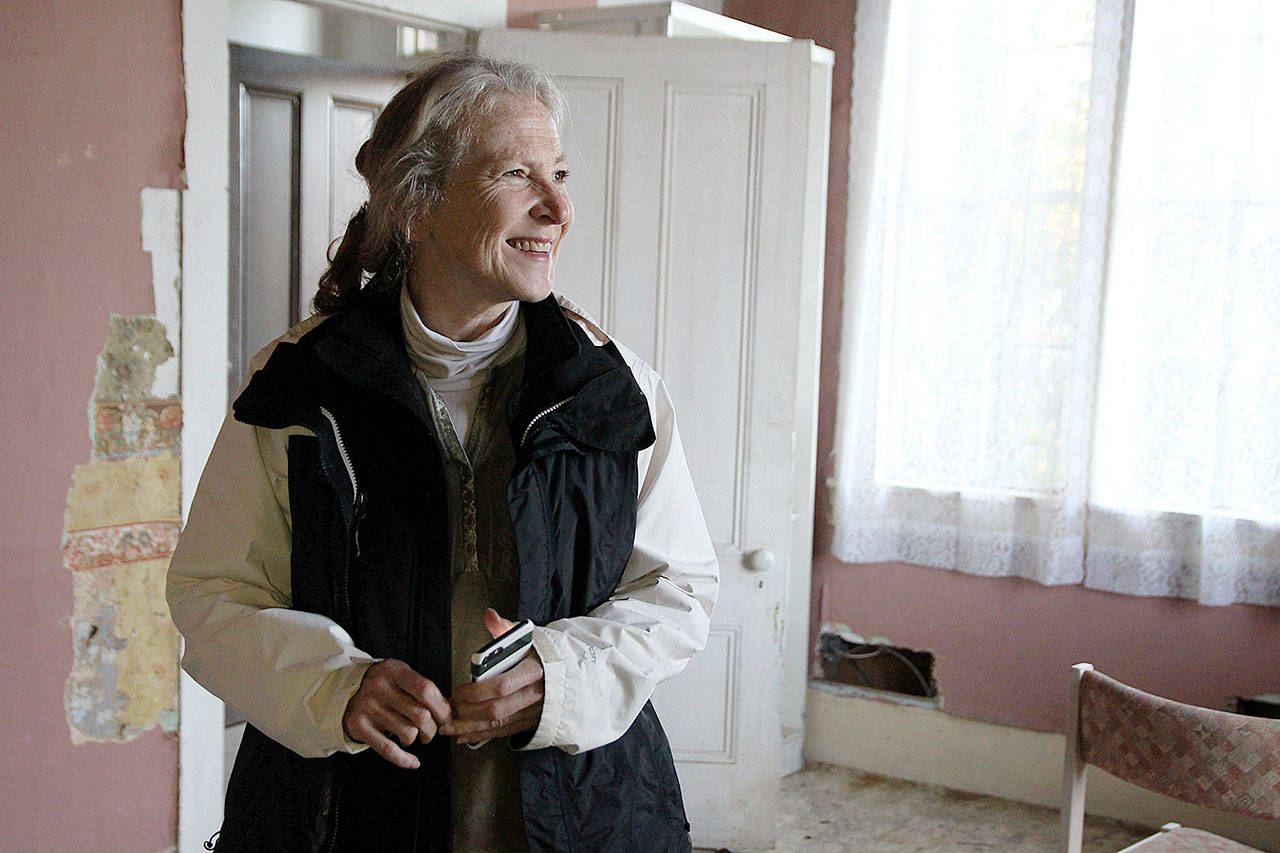It doesn’t have central heating, barely has any plumbing and raccoons live upstairs, but the historic value of the 150-year-old Granville and Henrietta Haller House made it a steal.
After six years of raising donations and seeking grants, Lynn Hyde of the nonprofit group Historic Whidbey finally closed the deal on the purchase of the house Tuesday.
The Haller House, built in 1866, sits on Coupeville’s Front Street and is one of the oldest homes in Washington state.
Hyde brought together many organizations and governmental entities to complete the deal. About half of the $265,000 raised came through grants from the National Park Foundation, the National Park Trust, the Norcliffe Foundation and the Coupeville Lions.
Many private citizens also donated to the cause.
“It truly took the whole village to save this landmark cultural and natural resource for the community,” Hyde said.
The final piece of the puzzle came from the National Park Service, which purchased the Penn Cove shoreline parcel across the street, as well as a preservation easement on the house and lot; the purchases amounted to $110,000. The easement protects the “historic character” of the structure, Hyde said.
The house is significant in two ways, Hyde explained. Located in the town’s commercial district, the house somehow escaped modernization in the 20th century and is little altered.
Hyde describes the Haller House as a “rare architectural artifact” in a historic community.
“Coupeville is really the only place left in the state where you can find a concentration of buildings from the pre-1870 era,” Hyde said.
The Haller House is a contributing structure in the inventory of Ebey’s Landing National Historical Reserve, a partnership unit of the National Park System managed jointly by the Town of Coupeville, Island County, Washington State Parks and the National Park Service.
“The Haller House is a real gem in our territorial structures inventory,” said Rick Castellano, executive director of the Island County Museum. “Coupeville, Island County, and Washington state should be smiling widely that another of these rare, historical buildings is going to be around for many more generations to enjoy and learn from.”
In addition, the house’s first owner adds to the legend and significance of the house.
Col. Haller was involved in many of the major events of his era, including the war against Native Americans and the Civil War, according to a biography on the Historic Whidbey website.
As an Army leader, Haller was part of the mission to protect the Pacific Northwest settlers from both the British and the Native Americans. He was among those first on the scene after Native Americans beheaded Col. Isaac Ebey in Central Whidbey. He was an officer in the Civil War and was involved in Gettysburg.
Haller later moved with his family to Coupeville, where he was a merchant, postmaster, county treasurer and founder of Masonic Lodge No. 15.
Haller’s house was quite ostentatious for the time, Hyde said. It was built onto the Raphael Brunn House, which was built in 1859. It was two stories and has a large parlor room where groups of people could have congregated.
Hyde said her group has big plans for the Haller House.
First, it needs a new roof and rehabilitation inside; the raccoons will have to find a new home.
She said she also hopes to win grants from foundations and the government to fund much of the work.
Hyde’s plan is to have an interpretive space to educate people about the house and territorial history.
She hopes to have a period-themed mercantile store with a Victorian soda fountain.
Upstairs will be transformed into office space, which will provide revenue for maintenance of the property.
“It is exciting,” she said. “We are still pinching ourselves.”



